We Must Choose
Prayerful Reflection with the Movie Contagion
Watching Steven Soderbergh’s movie Contagion is somewhat disconcerting, which has not stopped great numbers of people around the world watching it in recent times.
In one sense, it’s an ‘older’ movie, given it first appeared in 2011. In another sense, it’s uncannily close to depicting our Covid-19 world.
Essentially, the plot is straightforward and one with which we can readily identify. There is a rapid spread of an unknown virus originating in Asia and that graphically begins claiming lives within the first twenty minutes of the movie.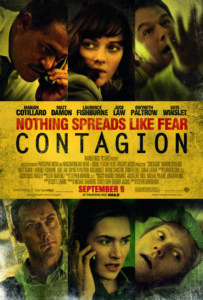
There is advice to wash your hands frequently, avoid touching your face, and to stay home from work or school if you feel unwell – all things that have been reinforced time and again in our current world.
In addition, there’s a level of social disruption and chaos, as well as conspiracy theories, and an unscrupulous individual seeking to take advantage of people’s fears.
It’s gripping viewing with an impressive list of big name actors including Laurence Fishburn, Kate Winslet, Jude Law and Gwyneth Paltrow, who gets what could be fairly described as a cameo role at the beginning of the movie.
As well as being gripping, Contagion also won high praise for the way in which it depicts how an illness could explode around the world.
Dr Anthony Fauci has said of it, "It's one of the most accurate movies I have seen on infectious disease outbreaks of any type. It did depict what would be an extremely rare possibility of a worst-case scenario. Audiences will look at this and say, 'Could it happen?' Certainly it could happen, but it's extremely unlikely to happen" (cf. Robert Roos, 9 September 2011, CIDRAP Center for Infectious Disease Research and Policy).
The really interesting thing about those comments is that they were made in 2011, not 2020. Dr Fauci is, of course, still very much part of today’s Covid-19 world and the “extremely unlikely to happen” has become “is happening.”
What makes Contagion disconcerting is that we feel that we are watching our world, but through a somewhat distorted lens. So much of what is depicted is our experience today, but there are differences.
Those differences were highlighted recently by director Steven Soderbegh in an interview in The New York Times in response to the question “Is there anything happening now that you didn’t foresee when making the film?”
Soderbergh replied, “What I couldn’t have predicted was the fracturing of society that it [Covid] would generate, and all of the things it would expose when the tide goes out, so to speak. I didn’t anticipate that it would reveal so starkly the sort of economic disparity that we’re aware of intellectually but that a lot of us are able to insulate ourselves from being directly affected by. Now, nobody escapes this. There are very few people whose lives will not be completely altered by Covid” (cf. ‘Steven Soderbergh and Amy Seimetz Made the Pandemic Movies of the Moment,’ Kyle Buchanan, 31 July 2020, New York Times).
Pope Francis made a similar point at his first public audience in six months when he said, “We do not come out from a crisis the same as before. We either come out better or worse. We must choose. Solidarity is the way to come out better.”
He went on to explain that “solidarity” refers to “something more than a few sporadic acts of generosity. It presumes the creation of a new mindset, which thinks in terms of community and the priority of the life of all over the appropriation of goods by a few. It is not merely a question of “helping others,” he said. “It is a matter of justice” (cf. Gerard O’Connell, 2 September 2020, americamagazine.org).
At the end of Contagion, life goes on – but not as it was previously. And that will be true also for us as individuals and as a society.
There can be no question of “surviving” in the sense of “riding out the storm” so that we can carry on life as it was prior to 2020. As Pope Francis says, “We do not come out of a crisis the same as before.”
And so we need to ask ourselves, as Catholics and as Marists, how do we cope with what is going on and how do we help others?
And in order to address those questions, of course, we have to take time to reflect on just what is going on.
Fr Augusto Zampini-Davies, in an article in The Tablet earlier in the year, had this to say: “This is a time to reset. What is essential? This is the question. What is essential for the Church to resume, to regenerate and to allow the Holy Spirit to ignite the essential dimension of Christianity? If Christ is walking with us in this tragic moment, where does he want to lead us?” (cf. Reflecting on Post-Covid Catholicism, by Christopher Lamb, The Tablet, 30 May 2020).
And so, once more, with Mary, we are called to ponder and to consider all these things in our heart.
To “ponder” is to ask that we may see as God sees and then act as we believe God would want us to act – which is discernment.
And so, as we look at ourselves, at our Church and at our society, and at what has been and is being revealed in our Covid-19 world, we ask “What would Mary do?”
Inevitably, we are lead to focus on our call to be “instruments of divine mercy.”
To portray, as Craig Larkin SM wrote in A Certain Way, “the “feminine features” of God, and to help to build a Church which is not perceived in terms of power, planning, control, administration and competitiveness, but rather in terms of community, compassion, simplicity, mercy and fellowship.”
And, as an expression of that attitude, we are also called not only to help individuals in need, but also to work actively to change systems and structures that oppress people. “It is not merely a question of helping others. It is a matter of justice” (Pope Francis).
There can be no going back to normal in our own lives, in our Church or in our society.We are living through extraordinary times that have affected -- and are affecting -- each of us in so many ways: spiritually, physically, psychologically, emotionally, financially and so on. We need to ask ourselves the fundamental question, “Who am I in this present world and what am I being called to be and do?”
We need to ask, as Zampini-Davies says, of the Church, “What is essential to resume, to regenerate and to allow the Holy Spirit to ignite the essential dimension of Christianity?”
And we need to ask similar questions of the society we live in. “What is essential for it to resume, to regenerate….” To quote Pope Francis again, “solidarity [is] something more than a few sporadic acts of generosity. It presumes the creation of a new mindset, which thinks in terms of community and the priority of life of all over the appropriation of goods by a few.”
We cannot ignore any of these questions. We cannot shut ourselves away physically or psychologically and wait until it is safe to emerge back into the world.
As Francois Marc SM wrote, “A Marian Church stands at the foot of the cross. She does not take refuge in a fortress, or in a chapel, or in cautious silence, when others are being crushed. She is vulnerable, in her deeds as in her words. With humble courage, she stands with the most insignificant” (from Plea for a Marian Church).
Contagion is certainly worth watching. It may be 9 years old; it doesn’t exactly depict our present reality – but it does lead us into contemplation and to ask the question, “What would Mary do in a Covid-19 world?”
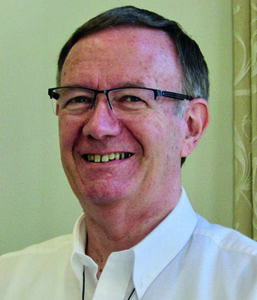
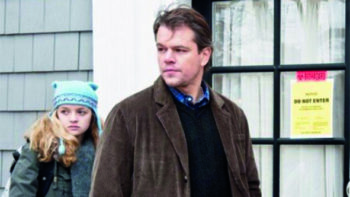
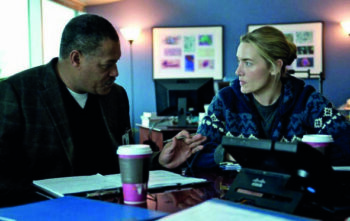
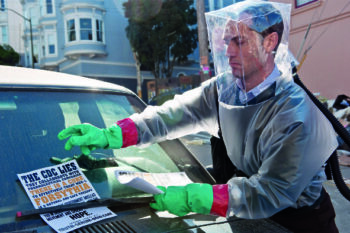
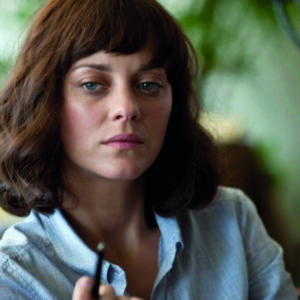
 Entries(RSS)
Entries(RSS)